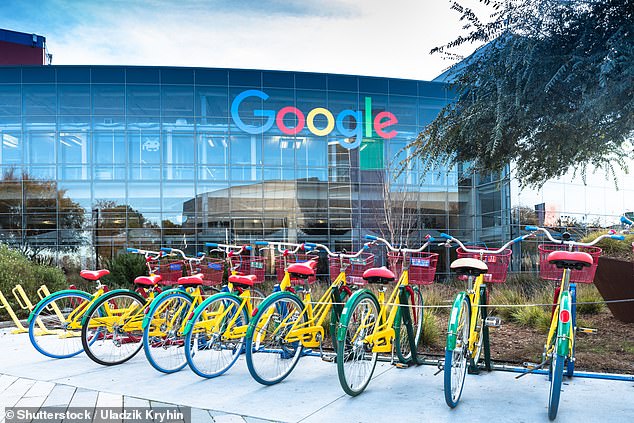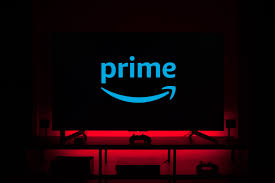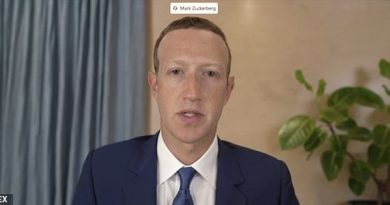Google threatens to remove its search function in Australia
Google has threatened to remove its search function in Australia if a proposed new law requiring it to pay news organisations for content is passed.
The proposed law, introduced to the Australian Parliament in December, will force Facebook and Google to negotiate fees with news companies whose stories appear on their platforms.
Under the world-first proposal, if a negotiation breaks down then an independent umpire will step in and decide the fee based on a ‘final offer’ method, which chooses one side’s position as the resolution.
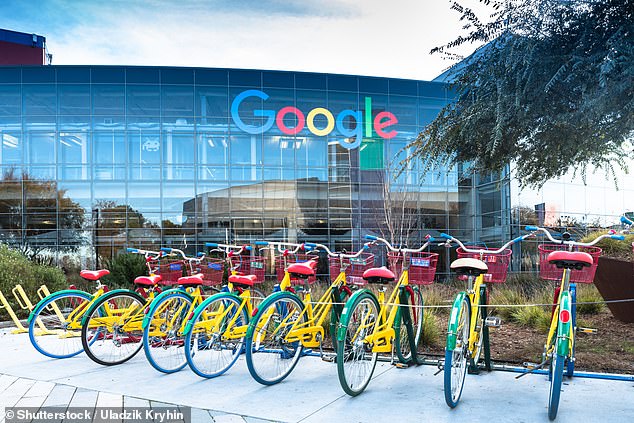
The federal government has introduced a world-first law to make Google and Facebook pay news organisations for their content
Australia’s battle with Big Tech is being keenly watched by governments across the world, not least in London, Washington and Brussels, where concerns have been raised over the ‘advertising duopoly’ of Google and Facebook.
Australian regulators found that for every $100 spent on digital advertising, $53 goes to Google, $28 to Facebook and only $19 goes to others.
Google turns over $4.9billion in Australia, with $4.3billion of that from advertising.
In a hostile public hearing on Friday, Mel Silva, the Managing Director of Google and New Zealand, said Google may be forced to pull its search function out of Australia if the code goes ahead.
‘The principle of unrestricted linking between web sites is fundamental to search and, coupled with the unmanageable financial and operational risk, if this version of the code were to become law, it would give us no real choice but to stop making Google search available in Australia,’ she said.
‘That would be a bad outcome for us but also for the Australian people, media diversity and the small businesses who use our products every day.’
Ms Silva said forcing Google to pay for snippets of news to appear on Google Search poses an ‘untenable’ risk to the business.
She said the company has been unable to work out how much it would be forced to shell out to media companies.
Ms Silva also said news searches only make up 1.25 per cent of Google searches and that paying news companies would be unfair to other companies that appear on Google Search.
In questioning, Senator Rex Patrick compared Google to the Chinese government which has blocked trade with Australia after Scott Morrison called for an inquiry in the origins of coronavirus.
He said: ‘The Chinese response was to threaten our market, to threaten our trade… We’ve got a similar situation here where our government steps out first and the very large organisation that is Google threatens to leave our market, do you think that’s proper conduct for a large international corporation?’
Ms Silva replied: ‘It is the only rational choice if this law were to pass for us.’
Senator Patrick said the code was going to go world-wide. ‘You’re going to pull out of every market are you? Or is this about stopping the precedent?’
Ms Silva scoffed and said the code posed an ‘untenable risk to our Australian operations.’
Greens Senator Hanson-Young accused Google of threatening Australia by suggesting it would leave the market.
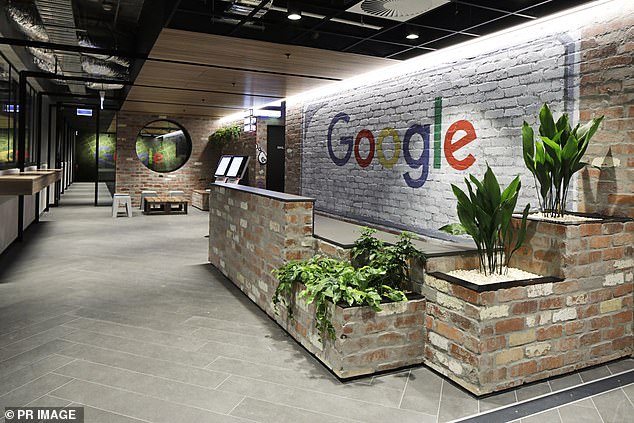
Pictured is the Melbourne office of Google
‘Why come here and threaten the Australian people,’ she asked.
Ms Silva replied: ‘We are outlining the worst case scenario, we don’t want that to happen.’
Ms Silva admitted that Google is worried about the precedent the code will set, amid fears other countries could adopt a similar model.
She said Google has never shared full news articles and that it helps publishers by ‘providing them free traffic every day.’
Senator Andrew Bragg accused Google of ‘blackmailing Australian consumers and policymakers’.
It is highly prescriptive micro regulation that speaks to control almost every interaction Facebook could happen these publishers — seeks to control, and it is a — accompanied by heavy penalties. There is no other law like it in Australia
The tech giants face $10million fines if they don’t follow the rules of the proposed code, designed to ensure they pay for news.
Instead of paying for news that appears on Google Search, the company is offering to have its ‘news showcase’ feature included, which allows users to read some stories that are otherwise behind paywalls.
The mandatory code aims to combat the bargaining power imbalance between news businesses and digital platforms, brought on by advertisers flocking to the latter.
Facebook is also unhappy with the plan, arguing in its submission to the inquiry that the proposal has already deterred its planned investments in Australian news.
‘The bill is not, as its name suggests, a bargaining code: it removes the potential for genuine bargaining by forcing Facebook to make payments that are detached from true calculations of commercial value and by incentivising news publishers to make unreasonable ambit claims and bargain in non-commercial ways,’ the company said.
‘It removes any meaningful influence over our own commercial dealings with publishers.’
Representatives from News Corporation, Australian Associated Press, Nine, Guardian Australia, the ABC and SBS will also appear at Friday’s hearing.
Mr Frydenberg and Communications Minister Paul Fletcher have drawn up the law after a three-year inquiry by Australia’s competition regulator, the ACCC.
The inquiry found Google and Facebook have ‘an imbalance in bargaining power’ when dealing with news companies.
Earlier in the year Google, threatened to charge Australians for using its search engine, while Facebook warned it would block users from sharing news stories if the law was passed.
But Mr Frydenberg revealed he had constructive conversations with the Australian heads of the companies on Tuesday and suggested they will accept the law.
In addition to payment for content, the measures would also force transparency around the closely guarded algorithms that tech firms use to rank content.
The code will require Google and Facebook to give publishers 14 days notice of any algorithm changes that are likely to have a significant impact on their traffic.

